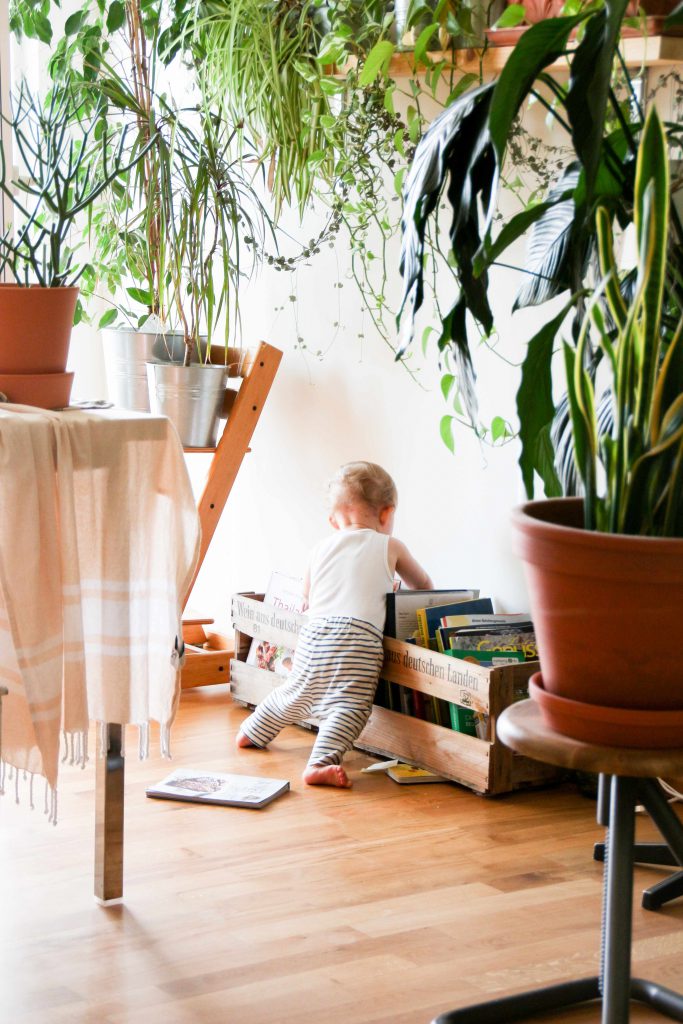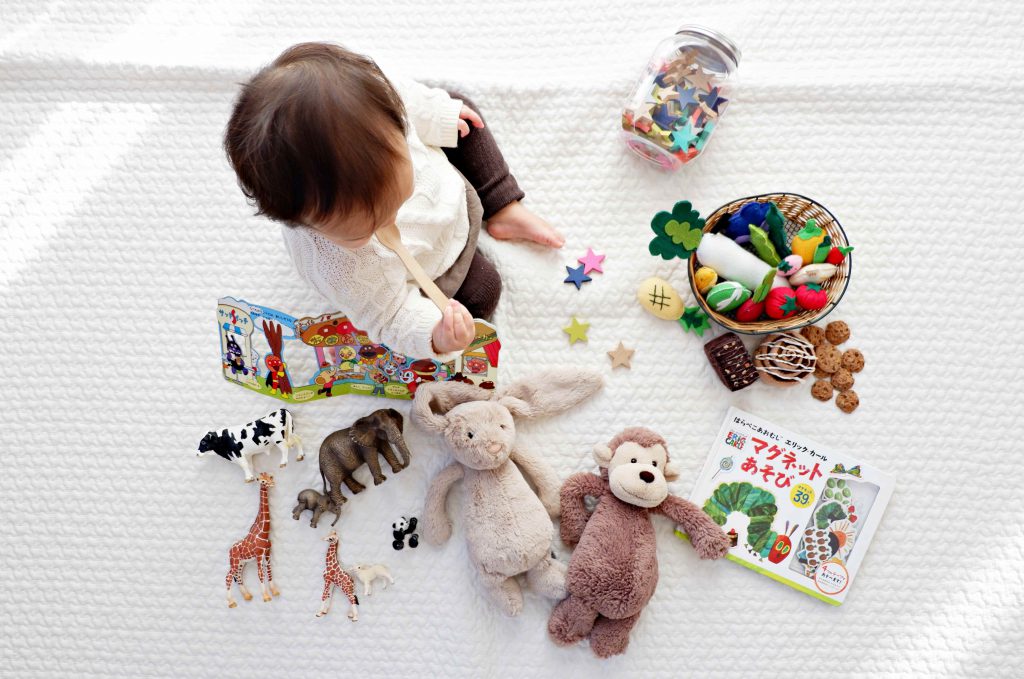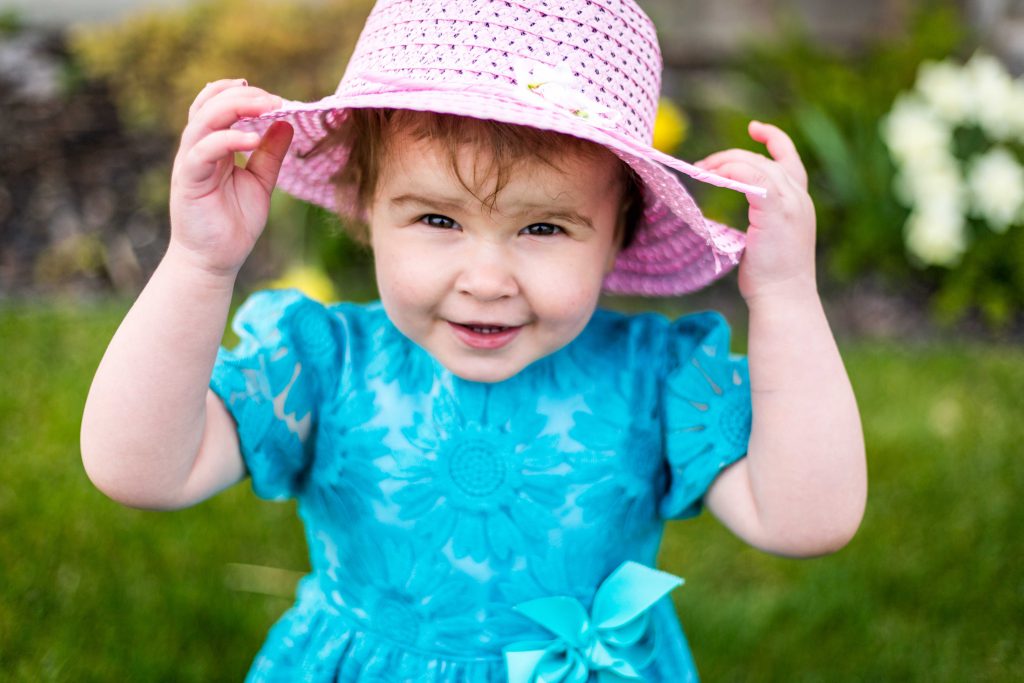How can play be used to develop my child’s speech and language?
When we hear the word ‘play’ we usually think that means taking a break from learning. But for children, play is learning. You may be under the impression that those first few games of ‘peek-a-boo’ did little more than melt your heart, but you’d be wrong. Your child is constantly learning, even from the simplest of games and interactions. In this blog, we’re exploring how play can develop your child’s speech, language and communication skills with the help of expert speech & language therapist, Mrs Leona Talsma.

They watch
From an early age, children are watching your actions and expressions, your mouth as you speak, your eyes and your body language.
Leona tell us that babies “watch their parents, siblings and friends talking, and after a few weeks, they start to play with speech sounds. Babies are primed to be sociable as historically their survival depended on it. This watching continues throughout childhood as children watch others walking, eating, using objects as well as talking and socialising.
“At around 6 weeks of age, they will smile, and this magic moment helps pave the way to interactive communication.”
They imitate
After watching and listening to your speech and actions, your child will begin to imitate them.
Leona says: “Even babies a few days old, are primed to imitate actions like sticking out their tongues. Imitation is one of main ways children learn new skills, whether this is copying what to do with a spoon or imitating how people say they want something. Through copying and trial and error learning, children expand their ability to communicate their needs. Sometimes, if sign language is used with young babies, they can copy the signs before they are able to say the words. Natural gestures like pointing can also be copied by children as part of their communication system.”
They listen
Listening starts from sounds in the womb; “most amazingly babies can even respond differently to certain speech sounds.” Children are always listening and picking up sounds around them, “as well as the rhythm and pitch of the speech they hear.
“Babies babble and play with speech sounds, gradually shaping the sounds they hear around them to the language spoken.”
They explore
Always curious, children love to investigate and explore what’s around them and interact with what they find. To play is to explore. Leona elaborates on exploration and its role in learning: “Very young babies start to play with sounds, cooing, gurgling and blowing raspberries! All this helps to strengthen the mouth and tongue movements involved in speech. As their first words emerge at around 1 year of age, they unwittingly explore the impact of these words on others. How many fathers have been overjoyed with their baby’s first word ‘dada’? The pleasure parents show their babies when they speak and interact encourages this dynamic to develop further.
“When children start to explore with toys like rattles and shakers, they are learning about cause and effect. Essentially a shake results in a sound. If you also play and talk with your child, they will watch, listen and copy, hanging on your every word.”
They use language for purpose
As children begin to use objects and language for purpose, they learn to conjure up words and sentences to communicate needs and share information. Leona adds that “this increasingly becomes more complex as their brains develop and their interactions with the world become more frequent.”
Now that we know how children pick up speech and language, here’s how to maximise their learning through play…
Opt for open-ended toys
Open-ended toys encourage your child to ‘do all the doing’. These are toys and games that require practical interaction from your child. There are plenty of specifically designed toys available to encourage this kind of behaviour, but you can also use random objects from around the house to create this form of play too. Leona’s advice is to ditch the computer games and keep it old school: “Traditional toys like inset puzzles, farmyard animals, toy food and cars are much better for developing language than computer games.
“There are lots of games you can make up using household items. Talking about the objects as well as the actions with the objects can really help develop their language. Think of all the language that can come from playing with a ball; roll, throw, catch, kick and drop are but a few.”

Turn everyday activities into games for language development
You might be surprised about how everyday activities can help. Leona will guide you through some examples and the benefits they carry:
“Getting food ready while you talk about what you are doing is a great way to introduce everyday vocabulary. Shops are also perfect for expanding a child’s vocabulary as you talk about what you can see around you. Even doing the washing up can be an opportunity for labelling your actions like splashing, scrubbing, washing and drying. Bath time is a wonderful moment to sing, recount nursery rhymes, explore with bath toys and learn the names of body parts. There are fantastic books for children from babies up that support children to learn word and sound play. Sharing books together before sleep time can help promote language, closeness and routine.”
Cast gender aside
Don’t get caught up in conformity and encourage your child to play with the toys they enjoy most – regardless of whether it fits their gender stereotype. If your boy shows interest towards a baby doll or if your girl likes jumping toy monster trucks, let them play away.
Baby dolls can be very useful when it comes to helping children with their language development. The doll presents an opportunity to label body parts that may already be somewhat familiar to your child; whether that’s through songs like ‘head, shoulders, knees and toes’ or simple tricks like stealing their nose and magically turning it into your thumb. By showing and naming body parts on the doll, your child can repeat the words whilst simultaneously pointing to their own features. Similarly, dressing your and naming the clothes as you put them on can help to encourage your child to talk along with you. Role playing verbs and feelings with the doll helps your child to understand words like ‘tired’, ‘hungry’ and ‘bath time’ (this can also be useful for potty training!).

Get creative with open-ended play
Let your child immerse themselves in their imaginative perceptions of real-life situations. Open up a make-believe restaurant and have your child take your order and bring you some food (you may or may not wish to leave a tip); promote your child to store manager and have them help you organise food and drink in your home-made grocery shop; save the world together as the most fearsome superhero duo since Batman and Robin. These are, of course, only examples so feel free to come up with your own. Remember to keep focused on your language level. As much as you want to broaden your child’s vocabulary, keep your sentences simple while you run through open-ended play. Your child is more likely to stay confident, chatty and motivated during play if they find you easy to understand.
Leona highlights the importance of social interaction during open-ended play: “What you will notice if your child goes to nursery is how your child copies other children in play. Imaginative play is important as it enables children to practice language and interactions in a social way. One minute they may be a teacher, whilst in another they are a bus driver. Throughout this imaginative play, they are often describing what they are doing, asking questions, negotiating and sharing ideas with others.”
Use your presence
Independent play is important for children as it helps their trial and error learning, but your presence is crucial for developing speech and language. “This starts from birth when you are changing nappies and talking to your baby or pushing your child around in a pushchair pointing out things around them,” says Leona. “A useful tip is to have the pushchair facing you so they can see your face for clues as to how to make the sounds and words.”
Whatever means of play you and your child choose to engage in, your presence is what makes it a learning experience. “It is the interaction between your child, you and others that develops language and communication. Remember, computer games tend not to involve this two-way interaction so they’re less useful for this purpose.”

Medstars Medical Concierge Service
Looking for extra guidance when it comes to your healthcare? Sometimes interpreting medical information and making the best decisions can be daunting and complicated. Our private medical concierge service provides easy access to top UK health experts. We guide our patients with genuine choice and trust, offering a bespoke service for anyone in the world seeking private UK healthcare. Learn more about Medstars Medical Concierge Service. Want to learn more about providing our medical concierge service as an employee benefit? Learn more about Medstars Medical Concierge for Business.
